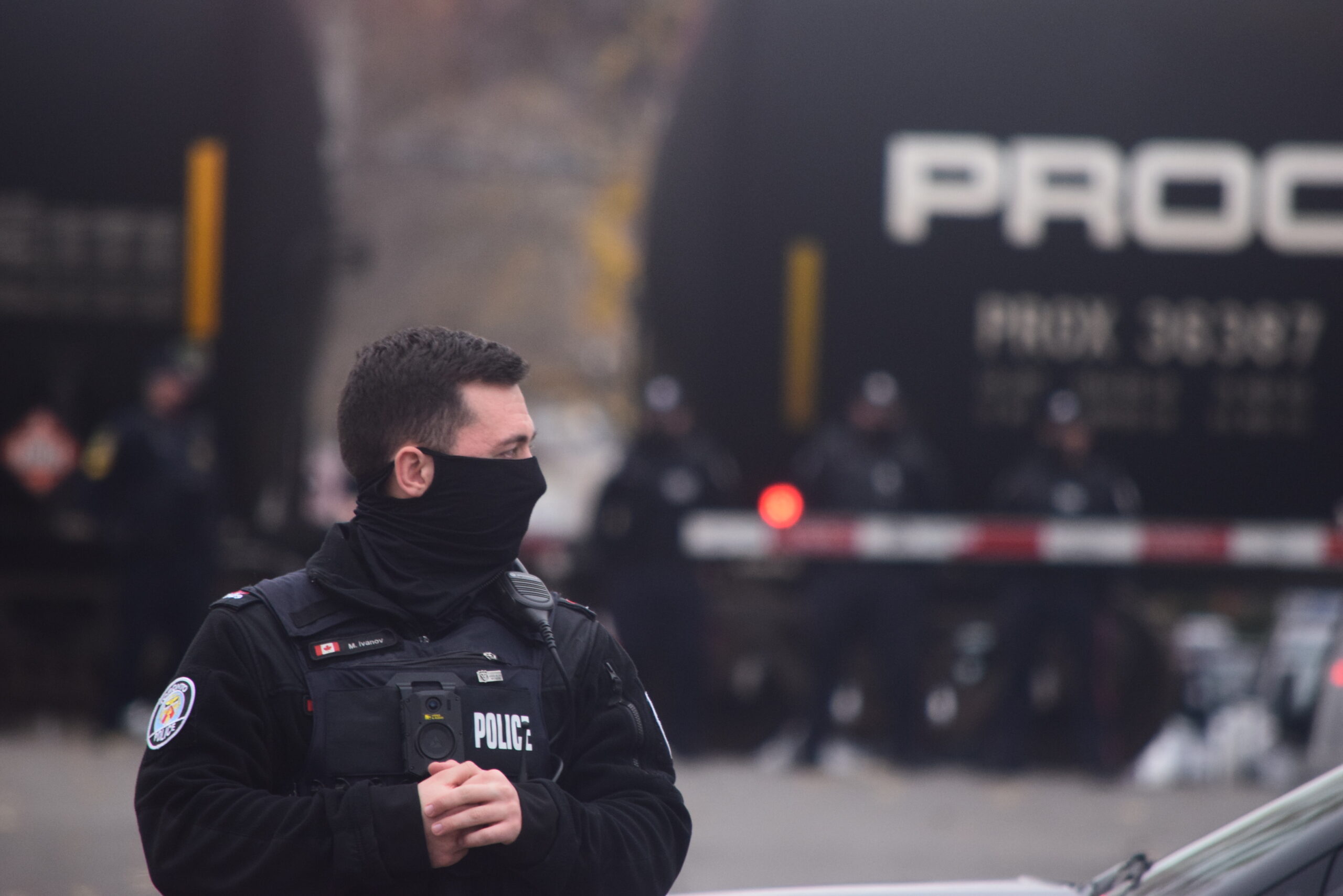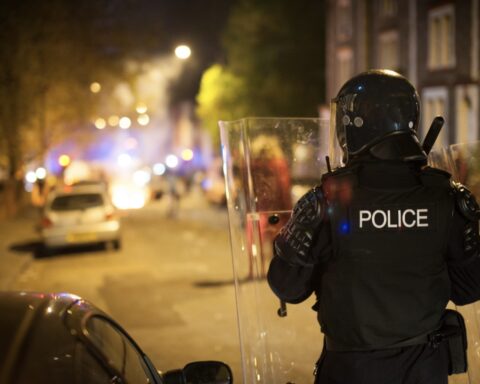Indigenous and Black people are highly overrepresented in arrests or chargeable incidents in British Columbia’s two largest cities which also have a high population of vulnerable new immigrants — Vancouver and Surrey — according to a new report revealing systemic racism in the province.
The report, funded by B.C.’s Human Rights Commissioner Kasari Govender, includes expert analysis of data from the Vancouver Police Department, the Nelson Police Department and the Surrey, Duncan and Prince George RCMP detachments, which were selected to represent different communities with varied demographic populations in the province.
In 2011, 44 per cent of Vancouver’s population was born outside of Canada, according to data from Immigration, Refugees and Citizenship Canada (IRCC), while Surrey is home to the second-largest immigrant population (220,155) in the Metro Vancouver Region, representing 22 per cent of Metro Vancouver’s total immigrant population.
“The key findings reflect policing issues affecting Indigenous and racialized communities, including new arrivals,” a spokesperson for the Commissioner told New Canadian Media.
Key findings in the 90-page submission by Commissioner Govender to the B.C. government’s Special Committee on Reforming the Police Act (SCORPA) include:
- Indigenous people are highly overrepresented in arrests or chargeable incidents in all five police services studied. For example, in Vancouver, Indigenous men are 17.3 times more likely to be arrested than their presence in the population would predict.
- Black people are highly overrepresented in arrests or chargeable incidents in three of the five jurisdictions examined: namely, Vancouver, Surrey and Nelson. Hispanic and Arab/West Asian people are also overrepresented in many police jurisdictions.
- People with mental health issues have frequent interaction with police services, which in turn also has a greater impact on Indigenous, Black and Arab/West Asian people. For example, in Nelson, Black people are 4.7 times more likely to appear in mental health incidents involving police than their presence in the general population would predict.
- Indigenous women are either grossly or significantly overrepresented in arrest statistics in most jurisdictions examined in B.C., despite the fact that women are generally underrepresented in arrest statistics. In many cases, their arrest rate exceeds that of white men.
“Systemic racism in policing undermines community trust and safety,” Govender said in a statement.
“To restore this trust, we need to reimagine the role of police in our province, including shifting our focus from the police as default responders to other community-based strategies.”
Govender also said it’s “critical to acknowledge that the data is about individuals, particularly Indigenous, Black and other racialized individuals who experience significant and long-term harm, trauma and mental health impacts as a result of police interactions and involvement in the criminal justice system.”
Scot Wortley is professor of criminology in the Centre for Criminology and Sociolegal Studies at the University of Toronto and helped analyze the policing data. According to him, it’s “clear” that “profound racial disparities in police arrest and mental health statistics exist” in B.C.
“These disparities demand monitoring, policy attention and action by police, government and oversight bodies to redress the disparities that this data points to,” he said.
The report called for “immediate and sustained action to address the structural discrimination behind these numbers and to redress the harms caused by it.”
Limited data
Govender also expressed concerns about the limitations of the police data available for research and study purposes in B.C.
For example, B.C. RCMP is the largest policing agency in the province and serves 70 per cent of the population. Yet, they do not currently retain historical records of data after a file is closed beyond the minimum national standard, which in some cases is just 24 months.
“The B.C. RCMP’s failure to retain historical policing data for research and study purposes is deeply troubling as it contradicts principles of transparency and accountability in policing,” Govender’s statement read.
Citing examples based on the data from the five police jurisdictions, the report noted that although Indigenous people represent only 2.2 per cent of Vancouver’s population, they were involved in 24.5 per cent of all arrests captured. Black people only represent one per cent of Vancouver’s population but were involved in 5.3 per cent of all arrests. Latinos and Arab/West Asian civilians were also significantly overrepresented in arrests in the Vancouver data.
Indigenous and Black people were significantly overrepresented in police arrests in Surrey as well. While Indigenous people only represent 2.6 per cent of the population there, they were involved in 6.9 per cent of all arrests. Black people, who only represent 1.8 per cent of that population, were involved in five per cent of all arrests.
“It’s going to take incredibly strong commitment, leadership and decisive action to fully eradicate the racist attitudes inherent in all police forces within B.C. and right across Canada. First Nations must be true partners in changing policing in B.C.,” said Grand Chief Stewart Phillip, President, Union of British Columbia Indian Chiefs.
For Alicia Williams, from the BC Community Alliance, Govender’s findings are “devastating.”
“Especially for the communities grappling with this discriminatory treatment and for people who have experienced or witnessed negative interactions with police,” she said. “But the Commissioner’s recommendations give us a roadmap for change.”
The RCMP said they are analyzing Govender’s findings.
A multiple-award winning journalist, Fabian Dawson is an internationally acclaimed author, filmmaker and media expert. His work over the last four decades spans the globe and he also serves as a consultant/strategic advisor to a variety of international companies. As deputy editor-in-chief of The Province, part of the Postmedia chain, Dawson led initiatives within a special publications group to provide directed content for a variety of organisations. He was named the 2019 recipient of the Bruce Hutchison Lifetime Achievement Award at Jack Webster Awards. Dawson has been invited by the governments of India, Malaysia, Taiwan, China, Hong Kong and the United States to act as a media observer/advisor on a variety of Asian-Canada issues. Dawson, now operates FD Media, which specializes in harnessing editorial assets to revenue generating opportunities.





